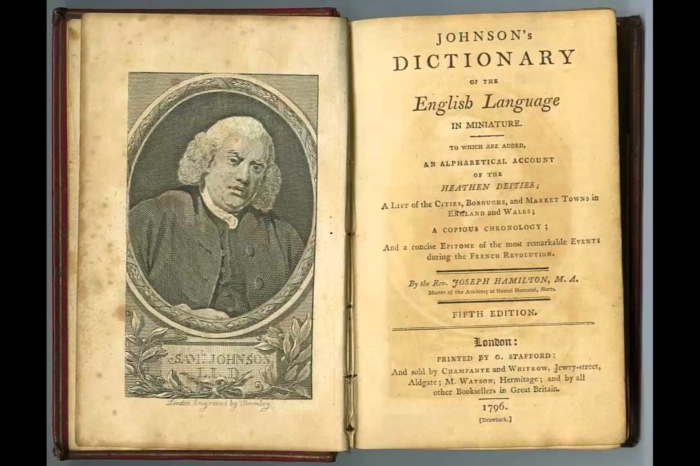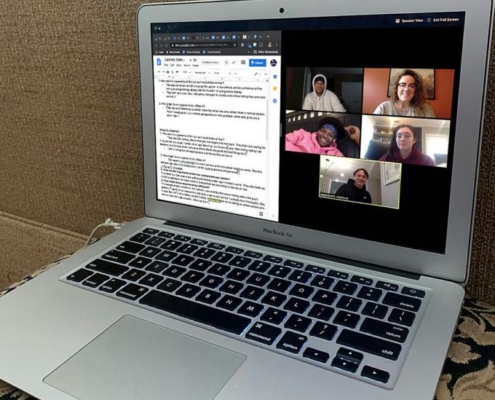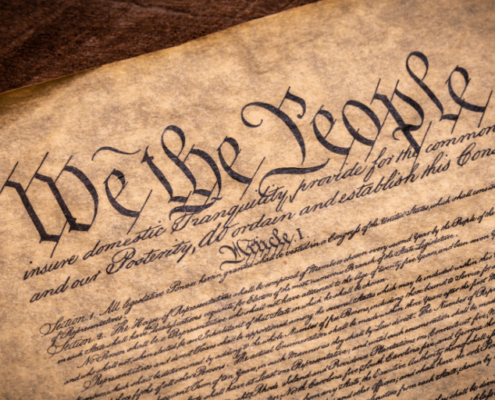Dimming the state’s literary light
This op-ed has appeared in CommonWealth magazine, the Worcester Telegram & Gazette, and The Berkshire Eagle.
“A ROBUST GENIUS, born to grapple with whole libraries,” is how 18th-century biographer James Boswell described the illustrious British man of letters, Dr. Samuel Johnson. It’s a literary reference that’s likely familiar to Massachusetts governors Charlie Baker and Deval Patrick, as both were Harvard College English majors.
September marks Johnson’s 310th birthday. His A Dictionary of the English Language (1755) used 114,000 timeless quotations to help define 42,000 words, making it among the most famous dictionaries in human history. Well ahead of his era, he was also a forceful public opponent of slavery.
Get Updates on Our Education Research
The gifted son of a struggling bookseller, Johnson suffered from a tubercular infection in childhood, partial blindness and deafness, and nervous tics. Financial troubles prevented him from completing college.
Yet, this eccentric, witty, and multi-talented writer produced many works, including the poem, “The Vanity of Human Wishes” (1749); a novel, The History of Rasselas, Prince of Abissinia (1759); and a noted preface to Shakespeare’s plays (1765), which helped expand the Bard’s fame worldwide.
Eighteenth-century Great Britain – whose Enlightenment ideals and empire of language so powerfully shaped colonial America and the modern world – is still called the “Age of Johnson.”
Language can shape, or misshape, civilizations. The crisis of modern American K-12 education is fundamentally a crisis in word quality. For decades, schools of education have not only eschewed rigor in spelling, grammar, phonics, and excellent writing, but likewise brushed aside basic background knowledge and cultural literacy.
These days, vapid edu-babble has been fused with empty business school buzzwords, producing an unintelligible super jargon that insults common sense and degrades Standard English. Until recently, Massachusetts was the exception.
Driven by bipartisan, liberal arts-centric leadership, including from Tom Birmingham, Mark Roosevelt, and Bill Weld – architects of the landmark 1993 Massachusetts Education Reform Act – the Commonwealth became the nationwide envy in K-12 schooling.
The Bay State, with English standards that were rich in classic literature and high-quality vocabulary, outperformed every other state between 2005 and 2017 on the reading portion of the National Assessment of Educational Progress (NAEP), “the nation’s report card.”
When Deval Patrick and Charlie Baker studied English at Harvard, its revered professor W. Jackson Bate won the 1978 National Book Award and Pulitzer Prize for his Samuel Johnson biography.
Interestingly, Dr. Johnson’s Dictionary defines “politician” as “a man of artifice; one of deep contrivance.”
In 2010, the hollowness of the Patrick administration’s sloganeering – “education is our calling card” – was revealed when they took $250 million in one-time federal grant money to abandon our proven English standards and MCAS tests in favor of inferior nationalized Common Core and PARCC testing, which cut enduring fiction by 60 percent.
The Baker administration could have easily ended Common Core’s academic mediocrity in the Bay State, but instead it followed Patrick’s example by deferring to the wishes of career state bureaucrats.
The Johnson Dictionary reads, “pension: an allowance… generally understood to mean pay given to a state hireling for treason to his country.”
When our democratic leaders betray enduring public standards they themselves benefitted from, they exemplify what the late-20th-century social critic Christopher Lasch termed “the revolt of the elites.”
NAEP data reveals that between 2011 and 2017 – the Common Core era – both the Bay State’s and the nation’s reading scores stagnated. Brookings Institution researcher Tom Loveless observed, “[T]he dominance of fiction is waning… and the change is evident in both fourth and eighth grades after 2011.”
While Google recently honored Samuel Johnson’s birthday with an online “doodle” about his dictionary, the research is clear that kids retain more by manually writing out class notes and thumbing through weighty reference books. In fact, excessive screen time, Twitter’s 280-character limits, and Instagram’s graphics are predictably leading to a decline in students’ vocabularies.
“In the beginning was the Word, and the Word was with God,” reads the King James Bible. The sacred role that language has played in the intellectual development of the English-speaking peoples reached perhaps its apex with Johnson’s world-changing dictionary.
With any luck, American K-12 education leadership can reclaim its stature as an enlightening beacon emitting Dr. Johnson’s love of words. That way, our schoolchildren can “grapple with whole libraries” instead of being consigned to a high-tech Tower of Babel.
Jamie Gass is director of the Center for School Reform at Pioneer Institute, a Boston-based think tank.
Related Posts












